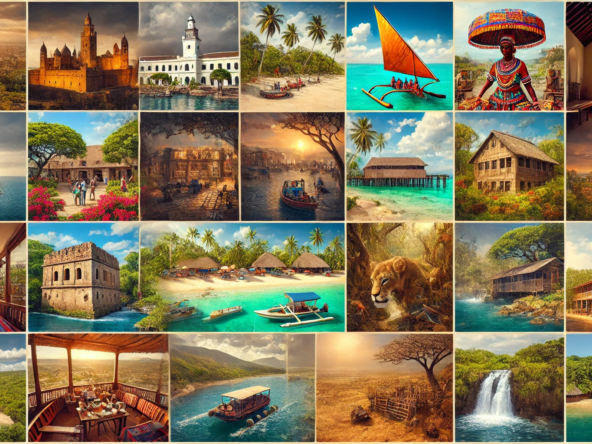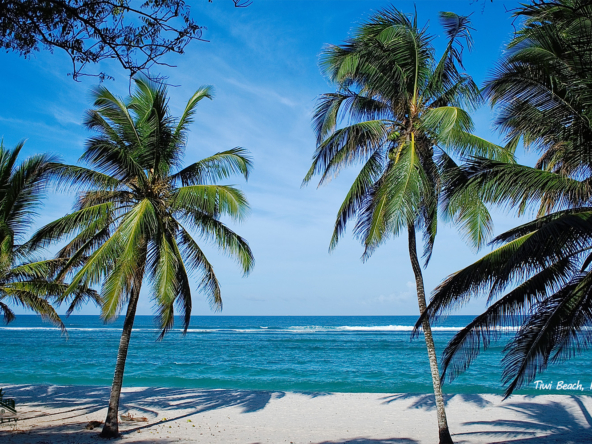Introduction
Welcome to a journey through Kenya, a land where culture and real estate blend to create an irresistible appeal to investors, homeowners, and tourists alike. Let’s delve into how the rich tapestry of Kenya’s heritage elevates its real estate market, making it a unique investment and living destination for foreigners.
Kenya, a country adorned with vast landscapes, from majestic wildlife plains to pristine beaches, is equally rich in cultural diversity. Beyond its scenic beauty lies a cultural heritage that significantly boosts its real estate appeal. In this exploration, we uncover how elements of Kenyan culture, from traditional festivals to architectural styles, enrich the attractiveness of its properties.
The Diversity of Kenyan Culture
Kenya is a melting pot of ethnic groups, each contributing its unique traditions, languages, arts, music, and dance. This diversity is not just a cultural asset but a magnet for cultural tourists and expatriates looking for an authentic cultural experience. The rich tapestry of life here adds a distinctive charm to the locality, indirectly boosting property values and demand.
Exploration of Kenya’s Ethnic Diversity and Linguistic Variety
With over 40 ethnic groups and more than 60 languages spoken, Kenya is a microcosm of cultural diversity. Each ethnic group, from the Maasai to the Swahili along the coast, offers unique perspectives on communal living, social structures, and even investment attitudes towards land and real estate.
Discussion of Traditional Arts, Music, and Dance as Cultural Attractions
Kenyan traditional arts, music, and dance are not only entertainment forms but also integral parts of daily life that attract tourists. Events showcasing these art forms can increase the visibility of local real estate as they highlight the vibrant community culture.
Cultural Tourism and Real Estate Development
Impact of Cultural Tourism on the Demand for Properties
Cultural tourism is a booming sector in Kenya, with visitors keen to experience its rich heritage firsthand. This interest directly translates to increased demand for accommodations, ranging from luxury resorts to vacation rentals, thus stimulating property development in culturally rich locales.
Examples of Real Estate Developments That Capitalize on Cultural Sites
Developments near the Maasai Mara Reserve or the white sandy beaches of Lamu are prime examples where real estate values have soared due to their proximity to cultural and natural heritage sites. These areas offer a blend of modern living spaces with easy access to cultural experiences.
The Role of Cultural Festivals and Events
Highlight Major Cultural Festivals
The Lamu Cultural Festival and Maulidi Festival stand out as major cultural attractions. These festivals not only celebrate the rich Swahili culture but also transform the locales into bustling hubs, significantly benefiting the local hospitality and short-term rental markets.
How These Events Boost Short-Term Rentals and Hospitality Real Estate
During these festivals, the demand for accommodation skyrockets, providing a boon to property owners. Investing in properties that cater to festival-goers can yield high returns, especially in short-term rental income.
Architectural Influence and Design
Influence of Kenyan Culture on Architectural Styles and Design Trends
Kenyan architecture is a reflection of its cultural diversity. The Swahili architecture of Lamu, with its intricate carvings and coral stone structures, is a good case in point. Developers are increasingly incorporating local designs and materials, appealing to buyers looking for authenticity and sustainability.
Examples of Real Estate Projects That Incorporate Local Artistic Styles
New developments in Nairobi and Mombasa are paying homage to traditional styles while providing modern amenities. These projects are not only aesthetically pleasing but also culturally resonant, attracting a niche market of buyers and investors interested in properties that reflect local heritage.
Cultural Heritage and Luxury Real Estate
The allure of living near historical sites like the Fort Jesus in Mombasa or the Gede Ruins in Watamu is undeniable. These areas attract high-net-worth individuals looking for luxury homes that offer a piece of Kenya’s storied past. Such properties often command premium prices and are sought after for their unique location and cultural significance.
The Influence of the Swahili Coast on Coastal Real Estate
The Swahili Coast is renowned for its historical and cultural richness. Real estate in coastal areas like Mombasa and Lamu is highly coveted, combining the allure of beachfront living with the charm of Swahili culture. This unique blend makes coastal properties not just homes but heritage sites that promise a serene and culturally rich lifestyle.
Community and Real Estate Investments
In Kenya, communal cultures inspire the creation of living spaces that foster community interaction and cultural exchange. Gated communities and residential estates are designed to encourage a sense of community among residents, reflecting the Kenyan ethos of unity and collaboration. These developments are particularly appealing to buyers looking for a supportive and engaging community environment.
Sustainable Real Estate Practices Rooted in Local Cultures
Kenyan cultures have long embraced sustainable living practices. Today, these traditions inform eco-friendly real estate developments. Using locally sourced materials, incorporating renewable energy sources, and designing homes for natural ventilation are practices that not only promote sustainability but also appeal to environmentally conscious buyers.
Challenges and Opportunities
Navigating cultural sensitivities and ensuring community benefits can be challenging for real estate developers. However, these challenges present opportunities to create developments that respect and promote local cultures, potentially opening up new markets and buyer segments. Engaging with the community and incorporating cultural elements can differentiate a real estate project in a crowded market.
Conclusion
Kenya’s rich cultural heritage is a unique selling point for its real estate market. By embracing and promoting these cultural aspects, investors and developers can unlock the full potential of their properties, offering not just a place to live but a vibrant lifestyle enriched by the diverse cultures of Kenya. For anyone looking to make an investment with lasting value, consider the cultural charm of Kenyan real estate.



